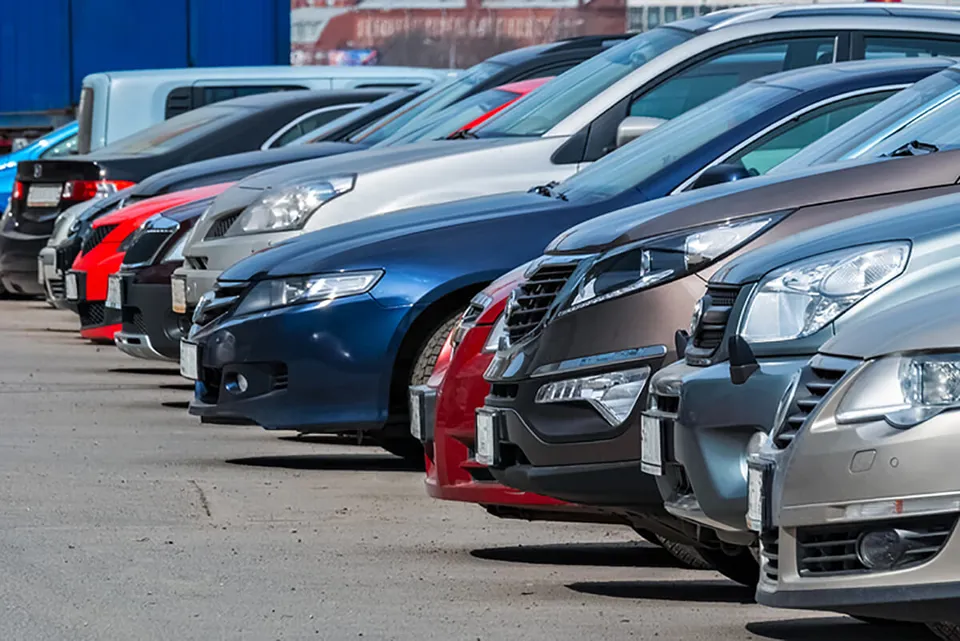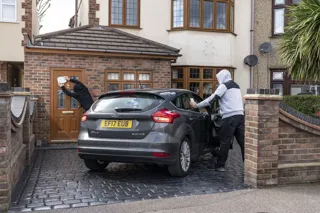The number of cloned cars on the UK’s roads is increasing as criminals copy legitimate registration plates and use fake identities to drive vehicles.
The latest data from Transport for London (TfL) shows an 857% increase in the number of penalty charge notices (PCNs) being cancelled in due to the car being a clone in April, compared to a year ago.
Furthermore, there has been a 631% increase in PCNs being overturned due to cloning since the ULEZ was expanded in October 2021.
In the event of a PCN being issued due to a cloned car, the legitimate registered keeper will be required to provide evidence to satisfy the issuer of the ticket that their car was not at the time and place where the alleged offence occurred.
If they don't appeal they face a ULEZ PCN charge of £160 (reduced to £80 if paid within 14 days).
Sarah Tooze, consumer editor at Heycar, which carried out the research, said: “These car cloning figures are the tip of the iceberg.
“Many drivers are unable to provide the evidence TfL requires to cancel the PCN due to the vehicle being a clone.
“Appealing the PCN process can also be complicated and intimidating, which means many more victims will pay the fine to avoid the stress and end the matter.
“The true number of cloned cars in London and elsewhere in the UK will be much higher but there are no official, national statistics which are publicly available.”
Heycar is urging the DVLA to publish car cloning figures so drivers can see the true scale of the problem within the UK.
“There needs to be greater transparency around this serious crime and tighter regulations to help prevent innocent motorists being stung with fines or, worse still, losing thousands of pounds by unknowingly buying a cloned vehicle,” Tooze added.
Car cloning is part of a wider increase in vehicle crime. In England and Wales, there has been a 7% rise in vehicle theft, with one area reporting a 37% spike since Covid-19 restrictions were lifted.
Marc Cramsie, aged 72 from London was faced with six different PCNs, potentially costing up to £1,070 when he was a victim of car cloning in 2021.
Three of the PCNs were from TfL for the congestion charge, two were from Lambeth Council for failing to comply with a prohibition on certain types of vehicle and being in a bus lane, and one was from Brighton and Hove City Council for being in a bus lane.
Although Cramsie paid the first fine he received he quickly realised his vehicle had been cloned when more PCNs arrived and he decided to appeal - a process which took six months in total, despite evidence of his innocence.
“For the PCN for Brighton I wasn’t even in the country at the time - I had my flight details and my boarding cards but that didn’t impress the council,” he said.
His car also had a resident parking sticker on the windscreen - the cloned car didn’t. But that fact did not overturn the PCNs either.
Both TfL and Brighton and Hove City Council wanted evidence that the police were investigating his car being cloned.
“They wanted the police station details and a crime reference number but when I rang up the police they logged my call but did not give me a crime reference as they couldn’t treat it as a crime,” he said.
When a driver reports their vehicle has been cloned in the UK the police put a marker onto the Police National Computer database to say that that vehicle is likely to be a duplicate identity and that allows officers to potentially stop that vehicle and verify who the owner of that vehicle is.
Sussex Police assisted Marc by writing to Brighton and Hove City Council to confirm he had spoken to them, while the Met Police asked him to request that Lambeth email them to receive confirmation that the incident had been accepted by them.
“There was a mismatch between the way that the council thinks the police should operate and the way the police actually do operate,” he said.
Cramsie also reported the matter to Action Fraud, the UK's national reporting centre for fraud and cyber crime, which generated a case number but “that didn’t seem to make a difference either”.
Eventually, he took his case to tribunal and was successful. “The adjudicator spotted that the number plate on the cloned car had two bolt holes in it - that seemed to be the deciding factor,” he said.
He then wrote to TfL and Lambeth Council to say that Brighton had allowed his appeal and they both also cancelled their PCNs. However, Lambeth would not refund the initial PCN which he had paid as he had lost his right to appeal
“The presumption very much seems to be that you're guilty until you can prove your innocence,” he said.
“Somebody less dogged than me might be frightened into just paying up when they don’t need to.”





















Login to comment
Comments
No comments have been made yet.